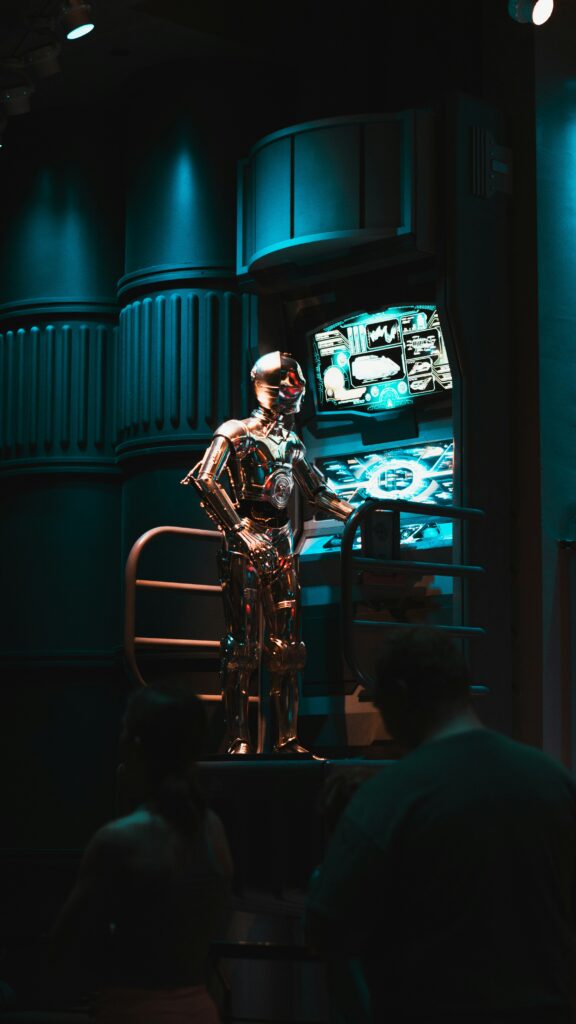The dawn of Generative AI has heralded a new epoch, extending its revolutionary reach far beyond the captivating artistry and content creation that initially captured public imagination. As of early 2024, intelligent systems, powered by advanced machine learning, are demonstrably at the forefront of a profound industrial transformation. This paradigm shift sees AI not merely automating tasks but actively generating solutions, designs, and insights that were once the exclusive domain of human ingenuity.
Generative AI: The New Engine for Industrial Innovation
Recent breakthroughs in Large Language Models (LLMs) and advanced diffusion models are proving to be game-changers across various sectors. For instance, in manufacturing, AI is now designing novel components that are lighter yet stronger, optimizing production lines for unprecedented efficiency, and even predicting equipment failures with remarkable accuracy, minimizing downtime. Companies like Siemens and GE are already integrating these intelligent systems into their industrial operations, leveraging AI for everything from digital twin simulations to quality control.
According to a recent McKinsey report, Generative AI could add trillions of dollars in value annually to the global economy by enhancing productivity across numerous business functions. This projected growth underscores the technology’s potential to redefine workflows, accelerate innovation cycles, and unlock entirely new business models. Enterprises are investing heavily, not just in AI tools, but in reimagining their core processes around these intelligent capabilities.
Reshaping Industries: From Pharmaceuticals to Finance
Healthcare & Life Sciences: Accelerating Discovery
In healthcare, Generative AI is rapidly accelerating drug discovery and personalized medicine. Researchers are utilizing AI to design new molecular structures, predict protein folding, and identify potential drug candidates with unparalleled speed and precision. This drastically cuts down the time and cost associated with traditional R&D, promising a future where cures for complex diseases could be found much faster. For instance, companies like Recursion Pharmaceuticals are using AI platforms to map biology and discover new therapeutics.
Manufacturing & Supply Chain: Intelligent Operations
The manufacturing sector is witnessing a renaissance. Generative AI assists in creating optimal product designs, simulating various material properties, and predicting manufacturing defects before they occur. In supply chain management, AI models analyze vast datasets to predict demand fluctuations, optimize logistics routes, and enhance resilience against disruptions, moving beyond simple automation to proactive problem-solving. Read more about how AI is revolutionizing operational efficiency in our previous article on AI in supply chain optimization.
Financial Services: Enhanced Security and Efficiency
For the financial industry, Generative AI offers powerful tools for fraud detection by identifying anomalous transaction patterns that human analysts might miss. It also personalizes customer experiences through AI-driven financial advice and significantly improves algorithmic trading strategies. The ability to simulate complex market scenarios and generate synthetic data for training sophisticated models provides a crucial competitive edge.
The Future Landscape: Opportunities and Challenges
Experts predict that the integration of intelligent systems will only deepen, permeating every facet of industrial activity. Dr. Anya Sharma, a leading AI ethicist, states, "Generative AI isn’t just a tool; it’s a co-creator and an architect of future industries. However, its widespread adoption demands a simultaneous focus on ethical guidelines, data governance, and upskilling the workforce to collaborate effectively with these advanced systems." The challenge lies in harmonizing human expertise with AI capabilities, fostering a synergistic environment.
While the opportunities for increased productivity, reduced costs, and accelerated innovation are immense, businesses must also navigate the complexities of data privacy, algorithmic bias, and the potential for job displacement. Proactive strategies for workforce retraining and the development of robust ethical AI frameworks will be paramount to harnessing Generative AI’s full potential responsibly.
The ongoing industrial transformation driven by Generative AI is more than a technological upgrade; it’s a fundamental shift in how industries operate, innovate, and serve their customers. As these intelligent systems continue to evolve, the businesses that embrace and adapt to this new reality will undoubtedly lead the way into a more efficient, innovative, and prosperous future.

